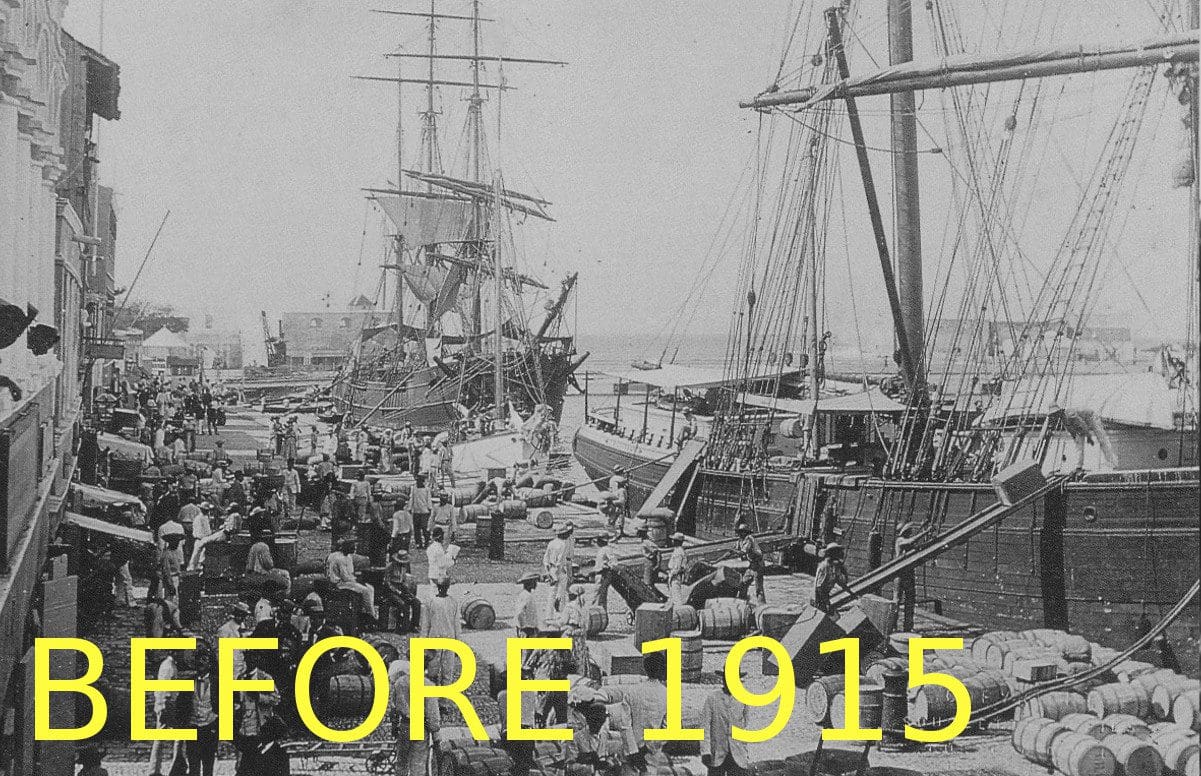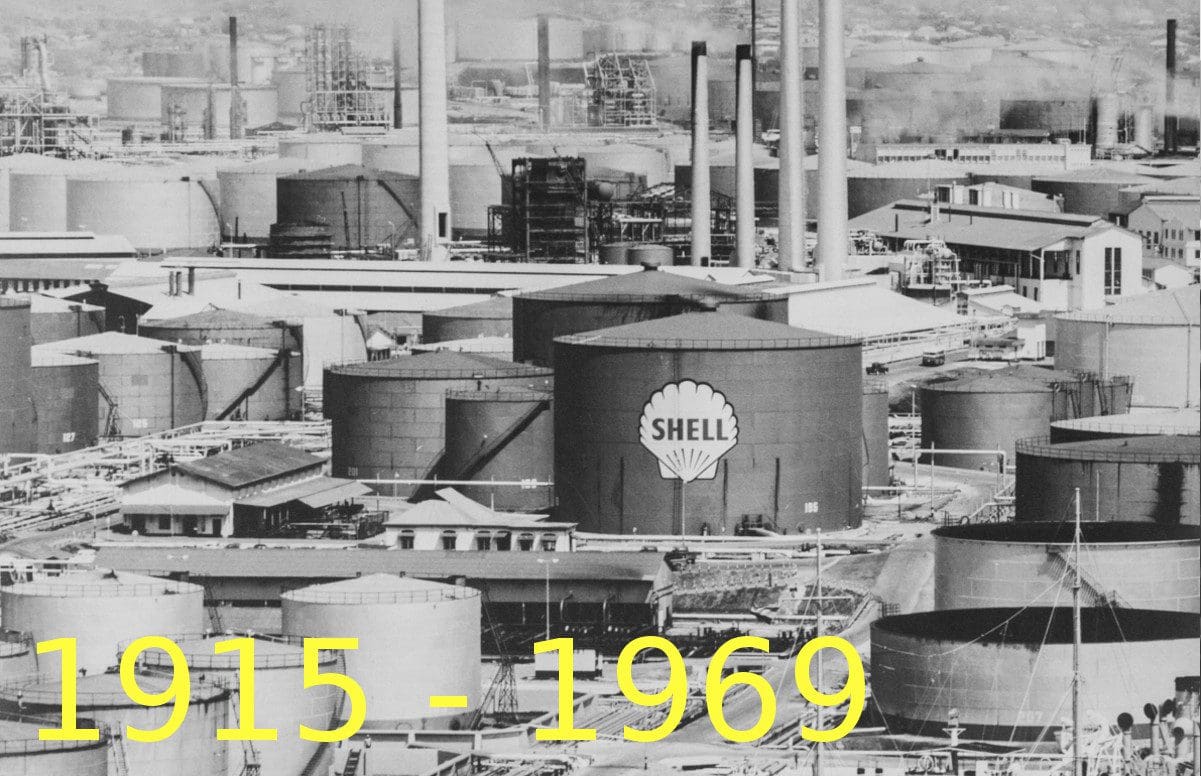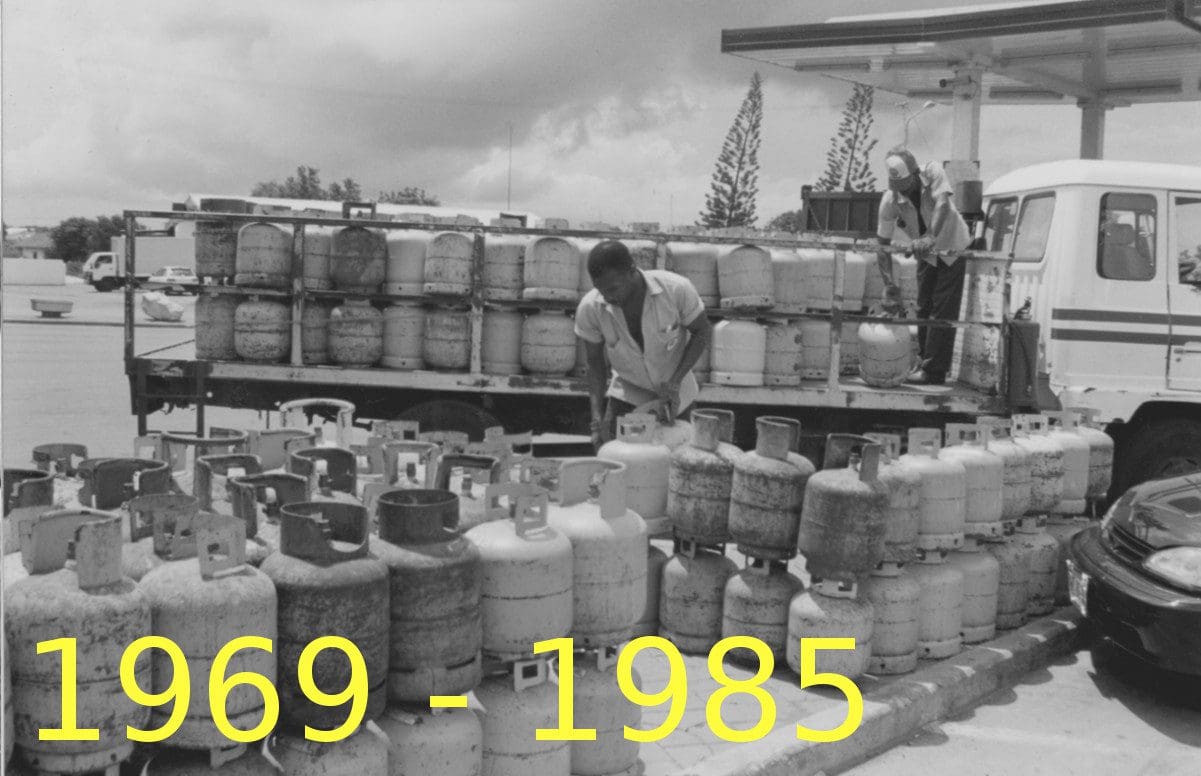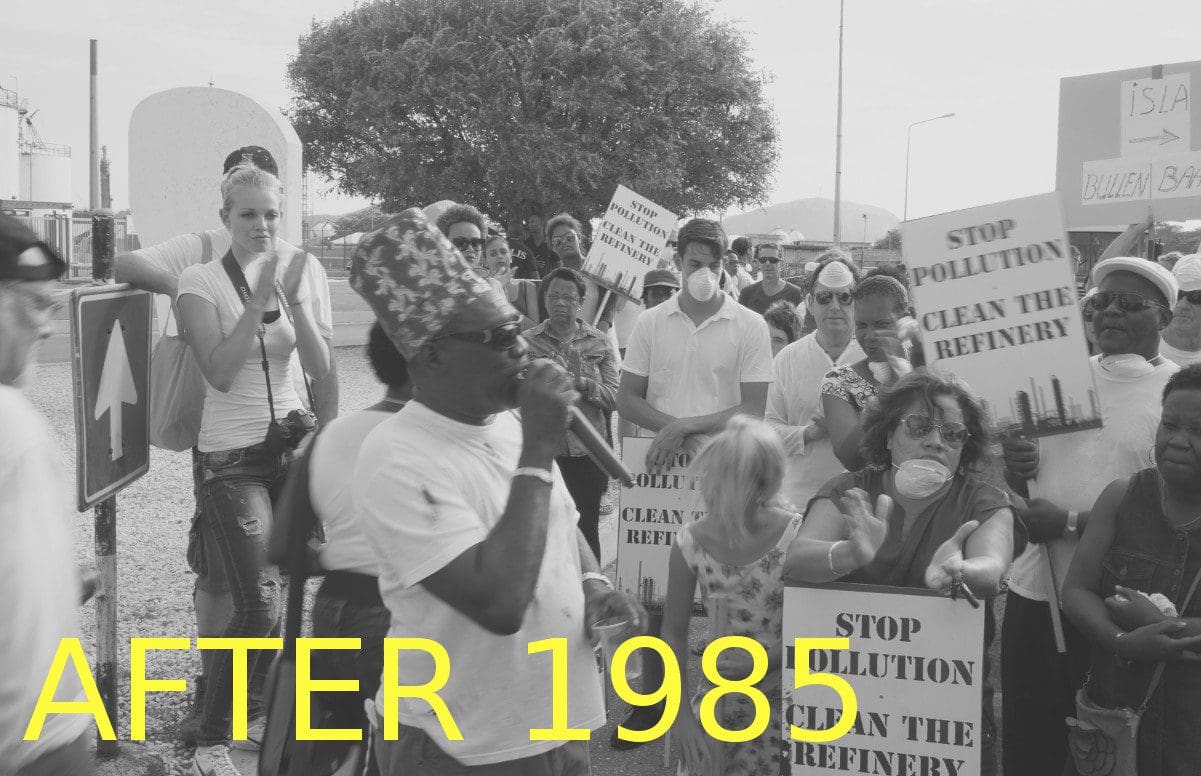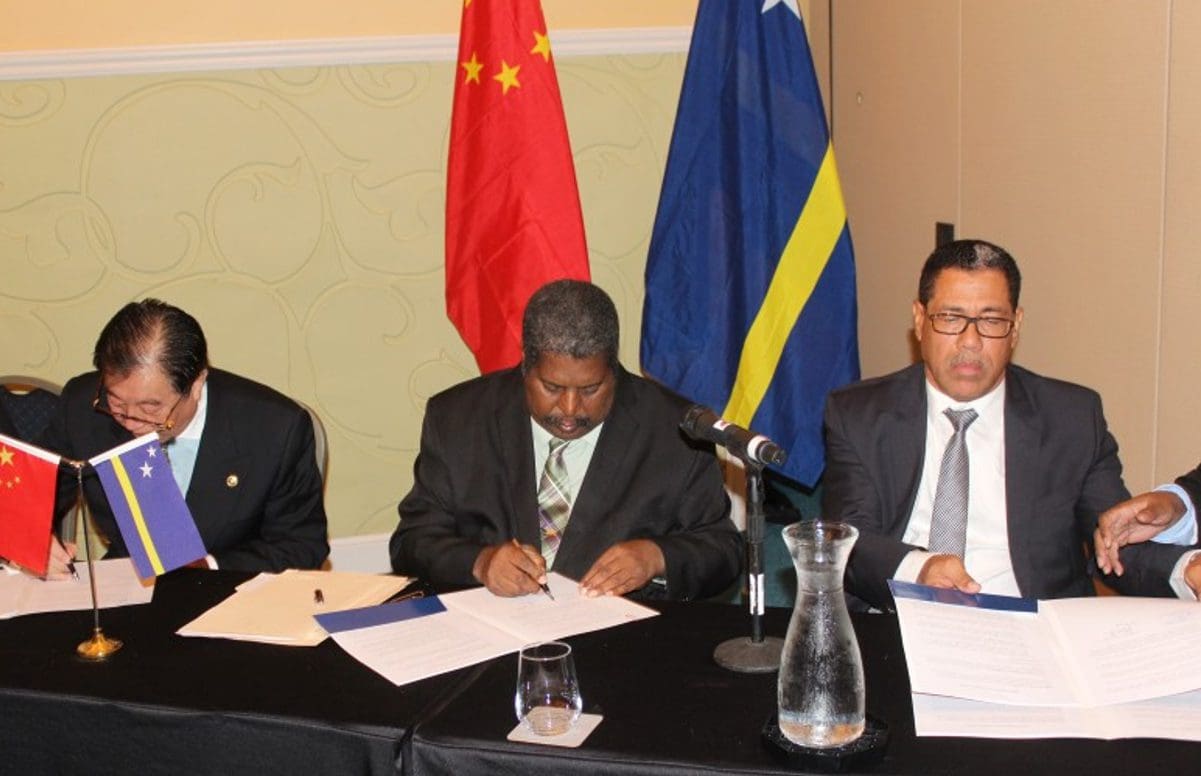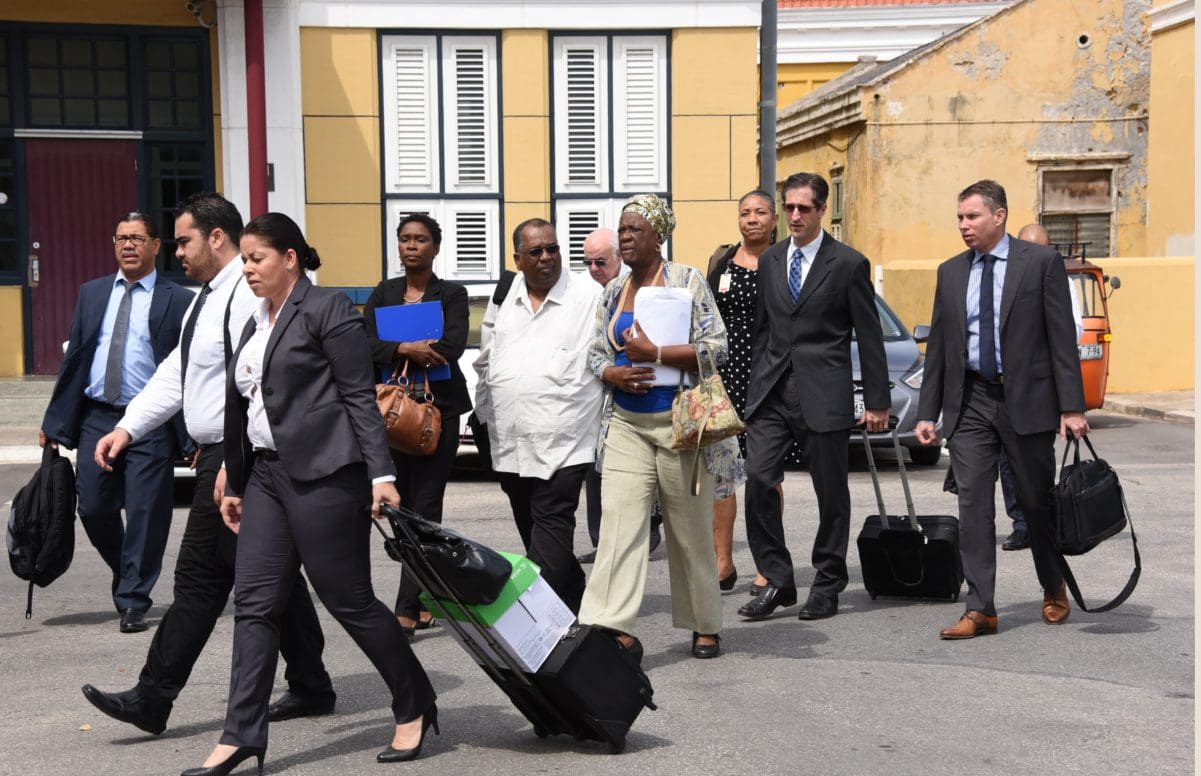
Isla den Nos Bida
100 years Refinery in Curaçao – 100 aña Refineria na Kòrsou
Exhibition
Future & Art
At the opening of the exhibition Isla den Nos Bida: 100 years of refinery in Curaçao, we find ourselves in a profound dilemma concerning the future of the oil industry on the island. While several options are available, the continuation of the refinery operation seems politically to be the most favored alternative. In this context, we are confronted with two opposing scenarios involving foreign economic powers.
Petroleos de Venezuela S.A. (PdVSA) has leased the refinery since 1985 and is slated to remain until 2019. The Venezuelan state oil company has recently stated the interest of the company could continue beyond the end of the current lease period. The Venezuelan government signed a Memorandum of Understanding (MOU) with the Curaçaoan government in 2014. However, PdVSA’s management stated in September 2016 that it’s too early to negotiate the extension of the current lease.
Considering the outdated state of the refinery and the requirements in place to make the complex environmentally safe, a substantial investment is needed for its upgrading. However, taking Venezuela’s economic and political situation into account, such an astronomical investment does not seem feasible on the side of PdVSA. To predict the future of PdVSA’s involvement in the refinery equals gazing into a crystal ball.
Meanwhile, the Curaçaoan government has instituted the Multi Disciplinary Project Team (MDTP) in 2013 to research the future possibilities for the continued operation of the refinery. This team has investigated several options and has advised the government to forge a cooperation with a Chinese national energy conglomerate; Guangdong Zhenrong Energy Co. Ltd. (GZE).
On September 15th, 2016, while Curaçao was in the grip of a general strike triggered by dissatisfied refinery workers, prime minister Ben Whiteman signed a MOU with GZE to solidify the intentions of a business marriage between Curaçao and China. Two months later, a Heads of Agreement document was signed by Whiteman and GZE, stating the intention of cooperation between parties for a period of 40 years. The intention is to run the refinery on Liquified Natural Gas, a dramatic change in line with the environmental and economic demands of the 21st century.
In these documents, GZE commits itself to upgrading Curaçao’s energy infrastructure. This upgrade includes modernization of the refinery and the BOO power plant, switching to natural gas for power generation of Aqualectra and upgrading the Terminal at Bullenbaai. These measures would involve a huge investment, which GZE has to raise on the international financial markets. As with PdVSA, predicting the future of GZE’s involvement in the refinery is at this point shrouded in mystery.
So far the situation remains unclear. Following the Curaçaoan parliamentary election of October 5th, 2016, a new government headed by prime minister Hensley Koeiman is ready to take charge. Yet the outgoing cabinet under Ben Whiteman continues to actively negotiate with GZE. The outcome of this essential negotiating process, will be crucial for Curacao’s future in economic, environmental and social terms.

